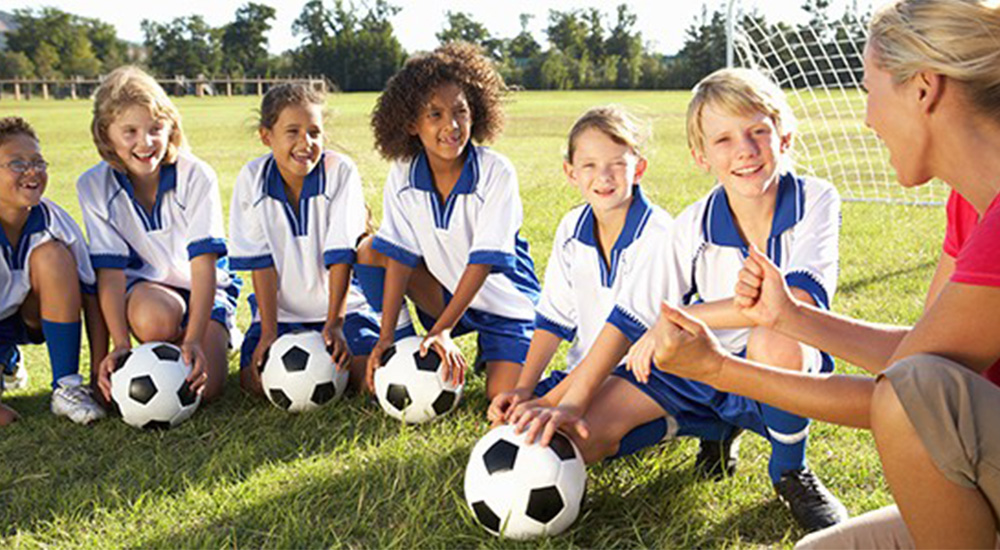
Question: I’m worried that my lack of experience and success in sports is going to bias my child’s sports experience. I don’t feel very confident about coaching or guiding him. What should I do?
Discussion: Most first-time sports parents are insecure about being their child’s primary coach. But the simple truth is that you know your child better than anyone else. You’ve been there since day one, watched him take his first steps and held him through the night when he was sick, so no one knows him individually better than you do. Take advantage of that knowledge. Guide him in the manner you know is best for him, learn alongside him—and keep things light and fun.
The mistake we often make is that we try to compare ourselves with master coaches. There are very few people at that level. Even the best youth coaches are constantly learning on the job about their specialty sport, about dealing with individual children, and about navigating group dynamics. Between the three of us, we’ve taught thousands of hours of gymnastics, soccer, basketball, and football, among other sports, yet we are frequently stumped and have to reconfigure practices, adapt approaches, and incorporate ideas cribbed from other coaches’ practice plans or experience.
Whole Child Sports is about engagement, not outcome. We noticed a mom in a park recently, playing football with her two young sons. She was wearing street clothes and cumbersome heels—not exactly the type of attire we recommend when you are playing with your kids. She was also possibly the world’s worst quarterback. Her passes were wobbly and often underthrown. But two things trumped such glaring defects: She was trying, and her kids were having an awesome time. They ran, leapt, and dodged with as much alacrity and intensity as they would have in any Pop Warner football training session.
Solution: Stay engaged. That’s the key. If you remain involved, you encourage your child to remain active and build your relationship with her. Kids crave connection; they value it over expertise. And who knows? The fact that you don’t know so much about sports may encourage your child to take greater ownership of her experience. If you don’t know how to execute a layup, you can look it up in a book with her. Discover the answer together, or find someone who knows and learn alongside him or her. Don’t just hand your kid over to a coach.
This bears repeating: Get involved and stay connected to the process. As your child learns and advances, you can ask him to teach you what he is learning. Showing you how it’s done does wonders for his confidence. If you are a bit squeamish about undermining your own authority, think of it this way: By the age of ten, most kids have figured out that their parents don’t know it all, anyway. So it’s okay to say, “You know what? I never really played golf. You did it at school? Wow. Teach me what you learned about making a putt.”
Take pleasure in your child’s exploration. It’s her discovery. Your engagement is what matters, not your proficiency. Have her teach you the rules. The key is not to pretend. Be honest with her. You don’t have to learn the sport yourself. You may want to, or you may not. That’s fine. Just spend the time with her. Listen to her and enjoy her exploration. You will not lose credibility if you care and take the time. She will become the teacher and learn by showing you.
In fact, you often travel lighter when you have no sports baggage. In our experience, some of the best sports parents are moms and dads who don’t know the sport their children play, but support them and spend time with them. In fact, the lack of a sports biography can be a striking positive. Without experience in the sport, parents can focus more on supporting their kids, rather than expending energy trying to second-guess coaches and referees. Your ignorance becomes a sports-parenting plus.
The kids have made it quite clear: They want you at their games, but only if you are going to sit quietly and watch them play. What do they think about know-it-all parents who can’t help but speak out? Well, they responded in a survey conducted by Sports Illustrated for Kids on “The Top Ten Things Parents Don’t Get About Sports,” and here are our top three picks:
1. “I hate when parents tell us to do the exact opposite of what the coaches say.”
2. “Parents think they know the rules, but they don’t.”
3. And our favorite: “Parents who yell and scream look like dorks.”
From Kim John Payne, Luis Fernando Llosa, & Scott Lancaster. Beyond Winnning: Smart Parenting in a Toxic Sports Environment (Lyons Press, Connecticut, 2013)
